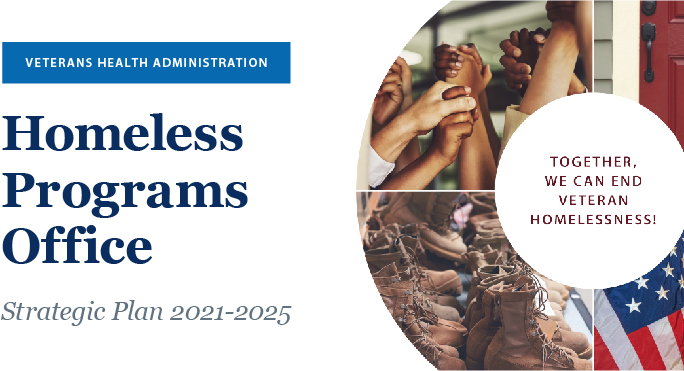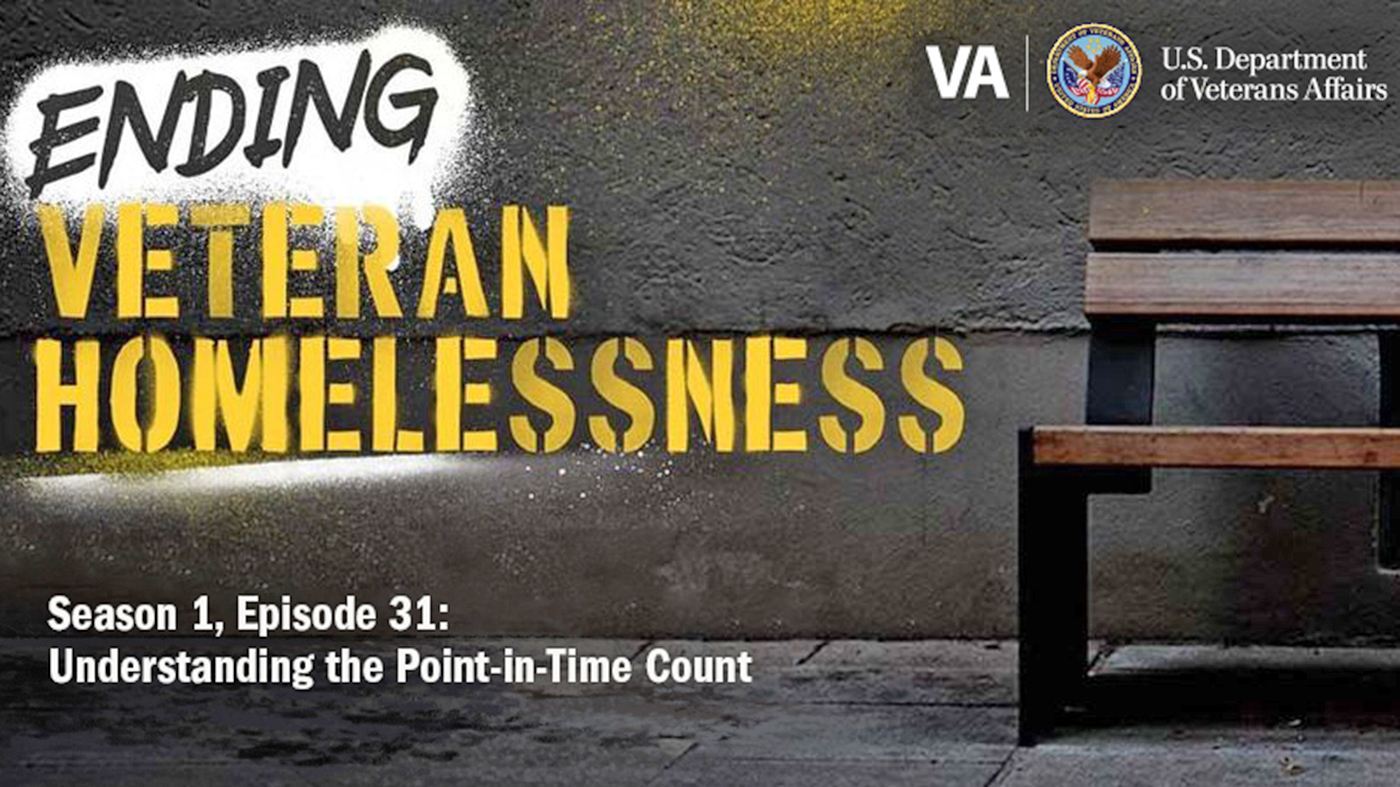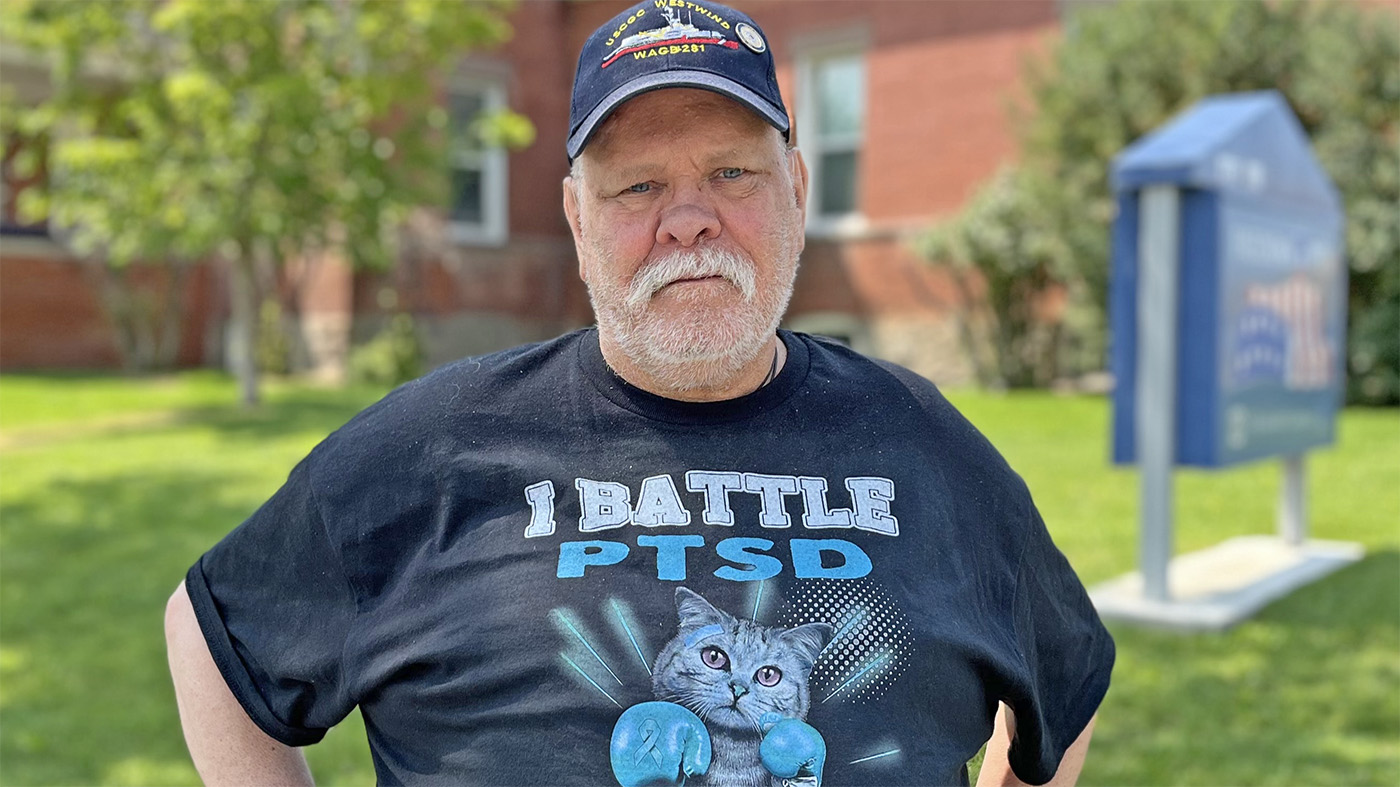The Veterans Health Administration’s (VHA) Homeless Programs Office (HPO) has released its newest five-year strategic plan.
Feedback from the Project CHALENG survey, VA’s Committee on Homeless Veterans, the United States Interagency Council on Homelessness, and other national stakeholders was key to helping us identify the services Veterans need and want HPO to provide. With this knowledge, we created a plan that captures a vision of a future, one where Veterans and their families will always have a safe, stable place to call home and which charts a clear path for completing this mission.
Since 2010, HPO has made significant progress helping Veterans experiencing homelessness rebuild their lives; however, maintaining the status quo isn’t acceptable. The uptick in the number of unsheltered Veterans as reported in the Department of Housing and Urban Development’s 2020 Point in Time count shows that we need to continually implement innovative practices that prevent and end homelessness among Veterans.
The story of Frank Ooten illustrates how HPO – through collaboration with partners and the coordinated delivery of its programs – helped a Veteran in crisis rebuild his life.
The HPO staff and our partners worked closely to define the following essential practices that would help HPO meet Veterans’ evolving needs:
- Conduct coordinated and preventive outreach by proactively seeking and identifying Veterans in need of assistance.
- Connect homeless and at-risk Veterans with housing solutions, health care, community employment services and other supportive services.
- Collaborate with federal, state and local agencies; employers; housing providers; faith-based and community nonprofits; and others to expand employment and affordable housing options for Veterans exiting homelessness.
Demographics of Veterans experiencing or at risk of homelessness helped us identify the populations most in need of services and the various methods for reaching them. Also, data on program enrollment, participation, exits, outcomes and returns; national assessments of unsheltered Veterans; and reflection on key lessons learned through the last decade united us in our understanding of the challenges many Veterans face and the successful strategies we will use to meet the following objectives:
- Expand and increase housing stock.
- Prevent and resolve returns to homelessness.
- Enhance targeted services to address the needs of high-acuity and vulnerable populations (e.g., Veterans who are older, have a history of opioid misuse, are at risk for suicide or COVID-19).
- Support the development of a highly skilled workforce.
- Use research and state-of-the-art analytical data, evaluation tools and processes to make informed and timely decisions.
- Provide equitable services and outcomes through all homeless programs and services.
The plan allows us to see how we are progressing, strengthen key programs and services and continually improve outcomes. For Veterans facing a housing crisis, this means HPO’s programs and services will be easier to access, more inclusive, respectfully delivered and tailored to each Veteran’s unique circumstances. The plan is a living document, and it will be revisited and updated as Veterans’ needs change – or when new data reveals innovative practices and solutions that improve our ability to help Veterans find and sustain permanent housing.
HPO will use the strategic plan to guide our policy decisions and actions to ensure our program goals and priorities are realistic, on track and meet Veterans’ needs.
To learn more about HPO’s vision and mission and how we plan to move forward to ensure Veterans experiencing a housing crisis have access to the housing, health and mental health, financial, legal, and employment services they need to live independently, review HPO’s 2021-2025 Strategic Plan.
*This post was updated on 4/28/21 to reflect hyperlink changes to the plan.
Monica Diaz is the senior executive director of the VA National Homeless Programs Office.
Topics in this story
More Stories
William Snow, senior program specialist at HUD, explains how the Point-in-Time Count provides valuable data on Veteran homelessness.
VA permanently housed 47,925 homeless Veterans in fiscal year 2024, exceeding its goals for the third year in a row.
VA Housing First changed the life of Grady Kendall, Coast Guard Veteran, because it was there when life knocked him down.







Please give NCHV a call at: 202-546-1969.
Hi Steven,
Please give us a call at NCHV: 202-546-1969.
Thank you,
Karen
Just recently got evicted from previous rental property for no reason whatsoever. The landlord/owner/tenant #D wanted a bigger place and mine was it so he booted me out, I lived there for over 5 years with only one late payment a year ago. No complaints. He gave me an eviction notice to be gone by april 1st, in which I had to have extension because I’m a service connected veteran who just recently broke his knee cap in more then 3 places and am in a full leg cast that goes from toes to about a foot above the knee and have very limited motion to do anything. I struggle to get up to use restroom and struggle to sit on pot, and this landlord wants me to move all my stuff, washer/dryer, microwave, livingroom couches and TV’s with stands, plus all kitchen appliances, not to mention whole bedroom set and dressers to another place when I have trouble walking with a adult walker and cane. Get it in storage, rent a moving truck, I guess hire people to move stuff to storage, and clean or paint old residence to somehow get back my $300 deposit i have 5 years ago or so. He did give me 30 days but i was bedridden at the time and could not do anything but just lay there wondering where and who is going to bring me food and change out my urinal. Needless to say I made it out with many difficulties but stuff is in storage, but I’m am having trouble looking for another rental space as I’m living day to day in my SUV vehicle which I layed down back seats to form a bed and park vehicle near some relatives dont do not have room for me at the time, I understand as they let me use restroom and shower if needed. Here’s the deal I can afford almost anything in price range but have very limited movement to physically look into property. I look up some on line but it’s hard to see what your actually renting without actually looking at the place. With the epidemic this makes it more difficult, I cannot climb stairs and I am rated at 70% with 100% unemployability permanent. I have my right knee that is considered loss of limb and my now damaged left knee with the fractured knee cap.